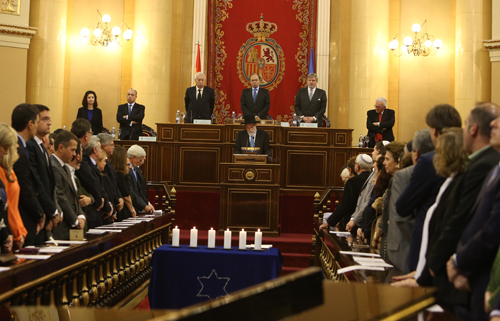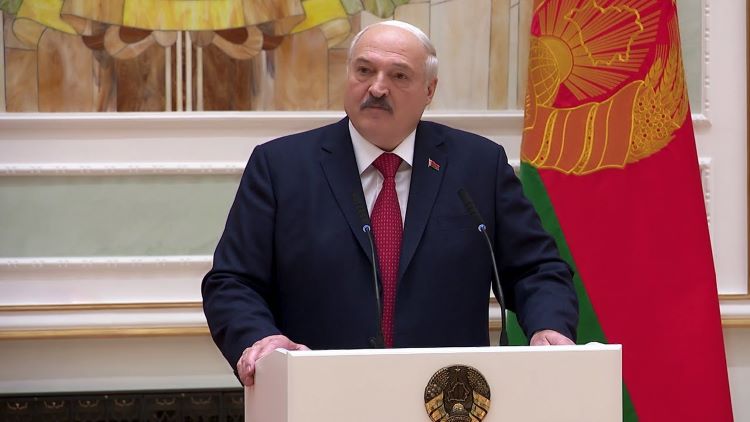García-Margallo, García-Escudero and Méndez de Vigo chaired the event./ Photo: Senate
Tamara Fariñas. 28/01/16
The acting Foreign Minister, José Manuel García-Margallo, left the national political crisis aside for a moment to “look back to the past” and reflect to avoid repeating the same mistakes, referring to the Holocaust, during an event to commemorate the victims at the Senate.
During the event of Commemoration of the Holocaust Victims celebrated every year at the Senate, the head of the Spanish diplomacy, who attends this event as minister for the fifth time, said that despite of “some periods in the life of a nation in which we live the present and we only look to the future”, something that is “legitimate” and “unavoidable”, it is convenient to stop “even if just for a few hours” to “look back to the past and learn some lessons”.
In an event that had the representation of different communities persecuted during the Holocaust, in which different representatives lighted six candles in memory of the victims –one of them, lighted by Israel’s Ambassador, Daniel Kutner–, the Foreign Minister asked “to stop the clock” and reflect “together” to “learn the lesson of History with the objective of preventing something like this from happening ever again”, echoing the same words used by the King, Felipe VI, last year at the event.
[hr style=”single”]
The voice of those victims of reprisals during Franco’s regime, for the first time in the event at the Senate
[hr style=”single”]
For his part, the Minister of Education, Íñigo Méndez de Vigo, remembered that although “nobody is able to alleviate the pain produced by the look in the eyes of those who suffered those tragic episodes”, we all “have the obligation to transmit that memory to younger generations” through education to avoid repeating the same mistake.
This year is the first time that the voice of those victims of reprisals during Franco’s regime has been represented. Cristina Almeida, promoter of the plataform Committee of Truth, also referred to education and insisted that “democratic and anti-fascist memory must be part of our education, since after 40 years of Franco’s regime and 40 of democracy, “memory has not yet been described as something essential”.






